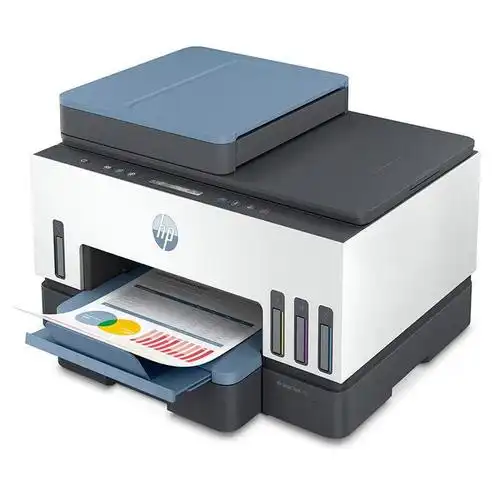Understanding 1099 Forms: Can You Print Them on Plain Paper?
The world of taxes and IRS forms can often seem daunting and complex. Among the myriad of forms, 1099 forms are an essential tool for reporting various types of income. As tax season approaches, a common question arises: "Can I print 1099 on plain paper?" In this comprehensive guide, we will explore this topic and address other frequently asked questions about tax forms to ensure you're well-prepared for tax season.
The Basics of 1099 Forms
Before diving into whether you can print 1099 forms on plain paper, it's crucial to understand what a 1099 form is and why it's important.
What Is a 1099 Form?
A 1099 form is an IRS document used to report various types of non-employment income received throughout the year. There are several variations of the 1099 form, each serving a different purpose. Here are a few common types:
- 1099-MISC: Reports miscellaneous income such as rent, royalties, and other types of payments.
- 1099-NEC: Specifically reports non-employee compensation, replacing the 1099-MISC box 7 since 2020.
- 1099-INT: Used by banks and financial institutions to report interest income.
- 1099-DIV: Reports dividend income and distributions from investments.
- 1099-B: Reports proceeds from broker and barter exchange transactions.
Each of these forms provides the IRS with necessary information about taxable income, ensuring that individuals and entities accurately report their earnings.
Who Needs to File a 1099 Form?
If you pay an individual or business $600 or more in a tax year for services rendered, you are generally required to file a 1099 form. This threshold doesn’t apply to every 1099 form type, so it is critical to verify the specific requirements for each situation.
Can I Print 1099 on Plain Paper?
The question of whether you can print 1099 forms on plain paper is a common one among taxpayers and businesses. The simple answer is no, you cannot submit a 1099 form to the IRS on plain paper. However, the reason for this is more nuanced.
IRS Specifications
The IRS has specific requirements for forms, such as the 1099. These forms need to be in a scannable format, typically featuring a special red-ink that makes them compatible with IRS processing machines. These forms are pre-printed and cannot be duplicated on a standard printer.
Purchasing Official IRS Forms
Official IRS forms can often be ordered directly from the IRS or purchased through various office supply stores. Additionally, tax software programs may offer compliant forms that you can fill out electronically.
Electronic Filing
Another option to consider is filing electronically. The IRS encourages electronic filing for its accuracy, convenience, and efficiency. Electronic filing may eliminate the need to handle paper forms altogether. Certain tax software and services offer e-filing options for 1099 forms.
Other Common Tax Form Questions
While we’ve addressed the primary concern regarding 1099 forms, there are additional questions taxpayers frequently ask during tax season. Below, we’ll explore other frequently asked questions to ensure smooth tax filing.
What Is the Deadline for Sending Out 1099 Forms?
For most 1099 forms, the deadline to send copies to recipients is January 31. The same date typically applies for sending the forms to the IRS if filing electronically. However, it's important to verify the deadlines as they can vary depending on specific circumstances or changes in tax law.
Can 1099 Forms Be Emailed?
Yes, 1099 forms can be emailed to recipients. However, the IRS mandates obtaining prior consent from the recipient before doing so. The consent process must comply with IRS guidelines, ensuring recipients have the ability to retrieve and print the form.
What If I Made a Mistake on a 1099 Form?
If you discover an error on a 1099 form, it’s crucial to correct it promptly. File a corrected form with the IRS and provide an updated copy to the recipient as soon as possible to prevent any issues related to over- or under-reporting income.
Tax Compliance and Best Practices
Adhering to best practices when handling tax forms can streamline the process and help avoid potential issues. Here are some tips to keep in mind:
- Keep Accurate Records: Maintain meticulous records of payments to contractors and other income recipients to ensure the accurate filing of 1099 forms.
- Consult with a Tax Professional: If you have questions or are unsure about any aspect of the tax filing process, consulting with a tax professional can provide valuable insights.
- Use Reliable Tax Software: Reliable tax software can guide you through the process of completing and filing tax forms, including the various types of 1099 forms.
Conclusion
Navigating the intricacies of tax forms such as the 1099 can initially seem challenging. However, with the right information and resources, you can confidently manage your tax reporting obligations. Remember, while you cannot print 1099 forms on plain paper for IRS submission, electronic filing and procuring official forms are viable alternatives worth exploring.
These key insights not only alleviate the stress of tax season but also ensure compliance and accuracy. By adhering to IRS guidelines and best practices, you streamline the process and contribute to a smoother tax season experience.











 浙公网安备
33010002000092号
浙公网安备
33010002000092号 浙B2-20120091-4
浙B2-20120091-4